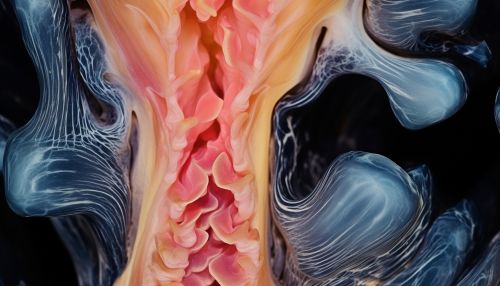Joubert Syndrome
Overview
Joubert syndrome is a rare genetic disorder that affects the area of the brain responsible for balance and coordination, known as the cerebellum. The syndrome is characterized by a distinctive brain malformation called the "molar tooth sign" which can be observed on brain imaging scans.


Genetics
Joubert syndrome is caused by mutations in any one of at least 35 different genes. These genes provide instructions for making proteins that are involved in primary cilia formation and function. Primary cilia are microscopic, finger-like projections that stick out from the surface of cells and are involved in signaling pathways that are essential for normal development of many tissues and organs. Mutations in these genes disrupt the function of cilia and result in the characteristic features of Joubert syndrome.
Symptoms
The symptoms of Joubert syndrome vary widely among affected individuals. Common symptoms include abnormal eye movements, abnormal breathing pattern, and intellectual disability. Some individuals may also have additional features such as retinal dystrophy, kidney disease, liver disease, and polydactyly.
Diagnosis
The diagnosis of Joubert syndrome is based on clinical features, brain imaging findings, and sometimes genetic testing. The distinctive "molar tooth sign" observed on brain imaging scans is a key diagnostic feature.
Treatment
There is currently no cure for Joubert syndrome. Treatment is symptomatic and supportive, and may include physical therapy, occupational therapy, and speech therapy. Regular monitoring is recommended to manage potential complications such as kidney and liver disease.
Prognosis
The prognosis for individuals with Joubert syndrome varies depending on the severity of symptoms and the presence of other health problems. Some individuals may have a normal lifespan, while others may have life-threatening complications.
Epidemiology
Joubert syndrome is estimated to affect approximately 1 in 80,000 to 1 in 100,000 newborns. It affects individuals of all ethnic backgrounds.
Research Directions
Current research on Joubert syndrome is focused on understanding the functions of the genes associated with the disorder and the role of cilia in development and disease. This research may lead to new treatment strategies in the future.
See Also
Cerebellum Cilia Genetic Disorders Genetic Testing Kidney Disease Liver Disease Polydactyly Retinal Dystrophy
